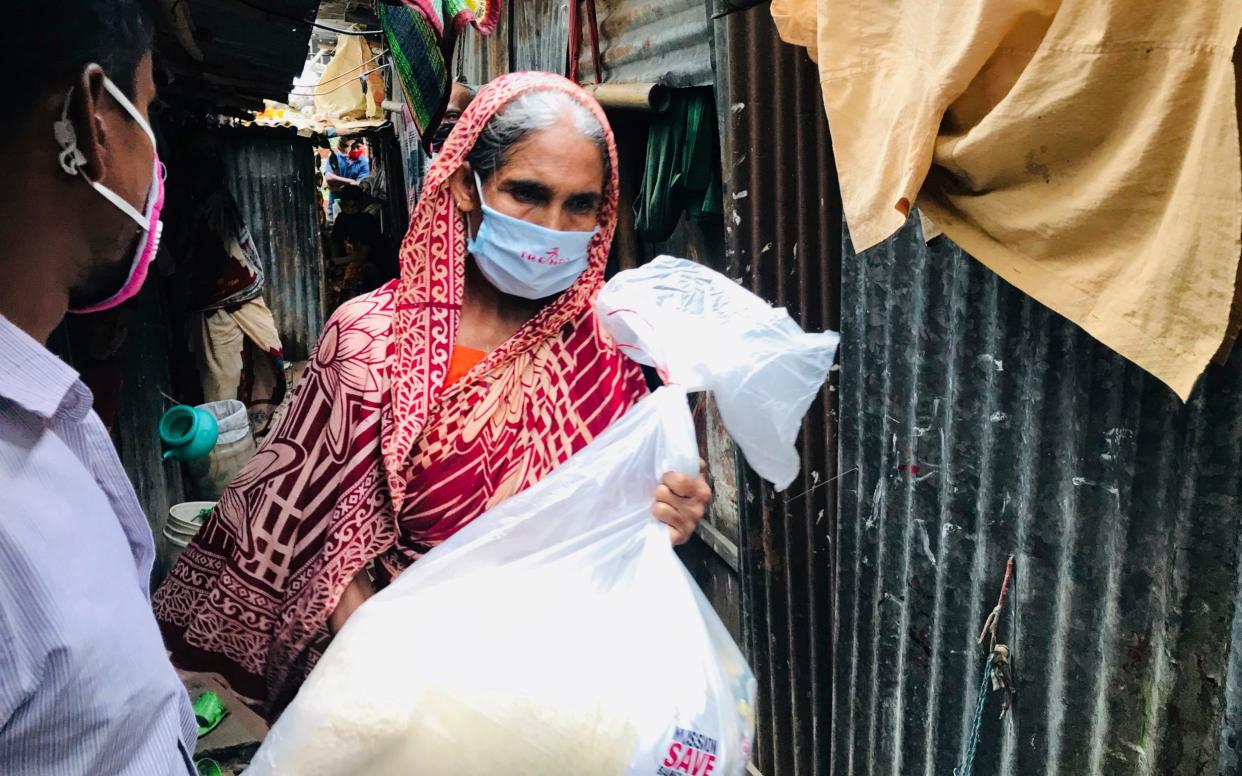Revealed: the devastating impact of Covid-19 on women


Women across the world are facing the brunt of the Covid-19 crisis in terms of job losses, food insecurity and mental health impacts, a new survey has found, prompting campaigners to yet again urge governments to put gender at the heart of their responses to the pandemic.
While campaigners have long been warning of a parallel pandemic of increasing gender inequality as a result of the coronavirus, a survey of over 10,000 people across 38 countries has laid bare the disproportionate impact the virus is having on women and girls.
The survey, carried out by humanitarian agency Care International, found that 55 per cent of women respondents reported losing their job or income, and were 60 per cent more likely than men to report that this was one of Covid-19’s biggest impacts on their life.
“As much as this first-of-its-kind report teaches us about the disproportionate economic and social impact of Covid-19 on women and girls, sadly the results of it are so predictable – indeed, Care did predict this back in March,” said Helen Pankhurst, women’s rights activist, an adviser to Care and great-granddaughter of suffragette leader Emmeline Pankhurst.
As women are more likely to be employed in the service and informal sectors, coronavirus-related restrictions are hitting them the hardest. But even in the formal sector the virus seems to be widening inequality, the report found, with women in Bangladesh six times more likely to lose paid working hours than men.
Women who lose their livelihoods are finding it difficult to get support: in Zimbabwe and Cameroon, for example, women make up 65 per cent of informal sector workers, such as vendors and cross-border traders, but that workforce is not entitled to unemployment benefits.
There is also discrimination in who can access formal support: the government in Côte d’Ivoire in West Africa, for example, has said that benefits must go to the head of the household - which is often a man - putting women at risk if he chooses not to share the resources, or is absent from the household.
Women migrants are especially at risk from job losses, the survey found, and are also faced with unsafe quarantine centres, high rates of gender-based violence, and few services targeted to women specifically.
In terms of going hungry, 41 per cent of women said that hunger is one of their biggest challenges during the crisis, compared with 30 per cent of men.
While both men and women have reported going hungry, Care points out that women are often expected to buy and prepare all the food for their family, and typically eat last and least in order to ensure that other family members have enough. In Afghanistan, for example, men reported eating fewer meals three days a week, while women are eating fewer meals four days a week.
“If there is no way to work as a hairdresser, I will find something else. If I must work day shifts in the kitchen and night shifts as a hairdresser, I will do it. I have no limits when it comes to work. I take the opportunities that I find,” Gregoris del Valle Camacho Figueroa, in Ecuador, told researchers.
“Options like pork and meat, a staple before, are now out of the menu. I cannot afford them. I have headaches because I eat about twice a day, not the three meals I ate before Covid-19.”
Women are also nearly three times more likely (27 per cent) to report mental health impacts from Covid-19 than men (10 per cent). Care International cites compounding worries about income, healthcare and food coupled with “skyrocketing” unpaid care burdens as a major driver for poor mental health.
Women in Lebanon, for example, reported spending 83 per cent of their time on housework and caring for others, compared with 14 per cent for men.
Nearly all countries covered in the survey have also reported rising gender-based violence, increased calls to hotlines and rising demand for services: 14 per cent of women surveyed reported that issues around GBV were among the biggest Covid-19 impacts on their lives, and 23 per cent of women interviewed in Côte d’Ivoire (compared with zero men) feared domestic violence because of Covid.
In response to the findings, Care is urging humanitarian organisations and governments alike to ensure that women and other excluded groups get access to social protection programmes and aid, as well as prioritising sexual and reproductive help and GBV prevention in Covid-19 responses.
Women and youth leaders should also be invested in, the report says, and data based on sex and age should be “consistently collected and published” in order to better understand the challenges that different groups are facing.
“For anyone paying attention to feminist issues, ‘women and girls disproportionately affected by crisis’ just doesn’t feel like news. Yet this report offers hope in the recommendations it makes, to inform a more effective Covid-19 response and a future that doesn’t ignore the interests of half the population,” Ms Pankhurst said.
“Focus on what women and girls need. Invest in women leaders. Fill the data gap. Be accountable for equality. Feminists have been marching, petitioning, demanding these very things for generations. This global pandemic could be a wake-up call. Here’s hoping,” said Ms Pankhurst.
Protect yourself and your family by learning more about Global Health Security

 Yahoo News
Yahoo News 
